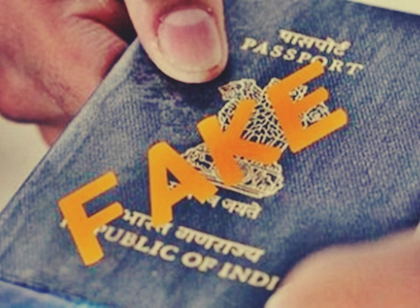Proceeds in Bengal passport scam routed to Bangladesh via Hawala, ED finds
By IANS | Updated: April 19, 2025 12:32 IST2025-04-19T12:29:24+5:302025-04-19T12:32:06+5:30
Kolkata, April 19 The Enforcement Directorate (ED), which began investigating the money laundering angle in the West Bengal ...

Proceeds in Bengal passport scam routed to Bangladesh via Hawala, ED finds
Kolkata, April 19 The Enforcement Directorate (ED), which began investigating the money laundering angle in the West Bengal fake passport racket last week, has got some specific clues suggesting that proceeds from the scam were transferred to Bangladesh through the Hawala route.
According to sources familiar with the probe, the pattern of cash inflow and outflow -- largely in hard currency -- indicates that while the racket operated primarily out of West Bengal, its network extended deep into Bangladesh, particularly in districts bordering India.
Investigators have identified a two-layered inflow of funds into the racket, which involved facilitating the illegal entry of Bangladeshi nationals into India and securing forged Indian identity documents for them.
In the first layer, payments ranging from Rs 1.5 lakh to Rs 2 lakh were made to arrange illegal cross-border movement, provide temporary shelter in West Bengal villages near the international border, and procure initial fake identity documents such as birth certificates, ration cards, PAN cards, voter ID (EPIC), and Aadhaar cards.
The second layer involved payments between Rs 75,000 and Rs 1 lakh for acquiring forged Indian passports, using the earlier fake documents as supporting evidence.
ED officials believe a substantial portion of the money earned from these illegal operations was eventually funnelled back to Bangladesh through the Hawala network -- ironically, to the same country from which the infiltrators originated.
This financial trail has raised suspicions that the racket may have links to fundamentalist groups operating in Bangladesh, suggesting a larger and more complex nexus.
Two key accused -- Indian Alok Nath and Bangladeshi Azad Mullick -- were recently arrested from different locations in West Bengal. Mullick, who ran Mullick Trading Corporation, had obtained fake Indian identity documents, including a passport, and was reportedly operating a Hawala syndicate from his Kolkata residence.
Last month, Kolkata Police filed a chargesheet in a lower court in connection with the forged passport case. It named 130 individuals -- of whom 120 are Bangladeshi nationals and the remaining Indian.
While the Bangladeshi nationals are accused of paying large sums to obtain fake Indian passports, the Indian nationals are charged with facilitating the creation of counterfeit identity documents.
Disclaimer: This post has been auto-published from an agency feed without any modifications to the text and has not been reviewed by an editor
Open in app